As we celebrate the 100th anniversary of Women’s Suffrage in the United States, this series of posts puts the 19th amendment in context of our own ancestors.
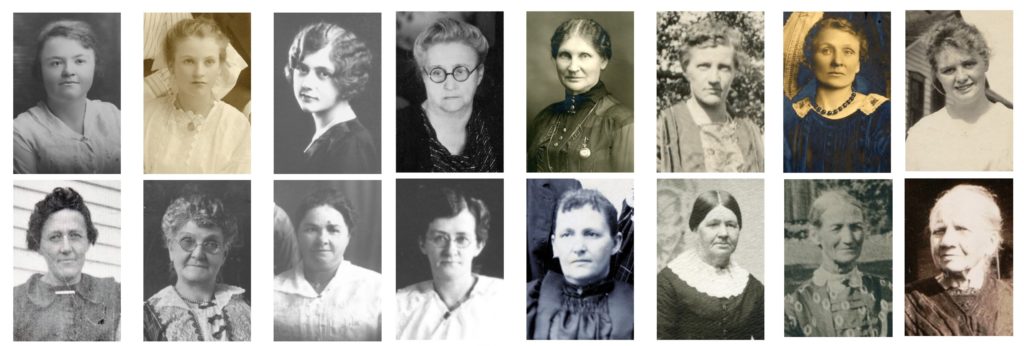
“The right of citizens of the United States to vote shall not be denied or abridged by the United States or by any State on account of sex.”
19th Amendment
This is the third post in our series on women’s suffrage.
In the first post you were introduced to our sixteen female ancestors who were alive when the 19th Amendment was ratified. In the second, you got a brief history lesson on voting prior to the 19th Amendment.
This post discusses what our ladies missed in the elections in which they were prohibited from voting.
We are only profiling the sixteen female ancestors who gained full voting rights when the 19th Amendment was signed on August 26, 1920. But, even though they aren’t being called out by name, generations and generations of other women before them in our family trees were also denied the right to vote. There were 17 presidents before the missed elections we are discussing here.
Elections missed
If things had been fair, all twelve of our sixteen ladies would have been able vote in presidential elections earlier than 1920. They were prohibited in participating in a lot of important decisions. Because most of us didn’t learn a lot about presidents other than big names like Washington and Lincoln, we’ll take a look at the elections from 1868 to 1916, before women’s suffrage. We’ll review a little about American politics and presidents in the lifetimes of our sixteen suffrage ancestors. These are the elections in which our ladies couldn’t cast a vote just because they were ladies.
1868
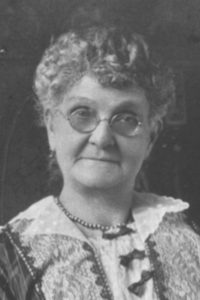
Amelia Brace Phillips
If women had had the right, Amelia Brace Phillips could have voted in 1868. At the time she was 24-years old, a couple years into her marriage, and had two sons, Guy and Frank. She was a farm wife and busy with the activities required to raise her children and manage her rural Illinois household. She was just a woman though, so she wasn’t allowed to cast a ballot in the election.
Seymour versus Grant
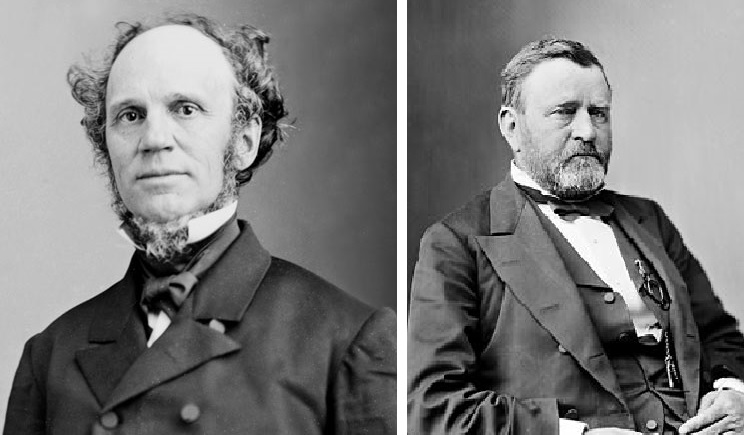
Horatio Seymour (D) v. Ullysses S. Grant (R).
This was the first presidential election after the end of the Civil War. It was the first election in which African American voters could vote in the reconstructed Southern states. African American men that is. Women didn’t have the right to vote.
Things got nasty during the campaign. Grant was held accountable for an antisemitic order during the war – he apologized.
Seymour was accused of having been disloyal to the Union and Republicans alleged that insanity ran through his family. An article in the Chicago Tribune leading up to the election claimed that even as a boy, Horatio Seymour couldn’t “hold his own.”
“Even when a boy Horatio Seymour couldn’t ‘hold his own,’ but slipped off on the slighted pressure, as is evidenced by a story related to him by an old lady who used to teach school in Pompey, near Syracuse, and Horatio, who is described as a ‘little fat squab,” was among her pupils. His place was on the extreme end of one of the benches, and it was an every day amusement of his companions to crowd him off, when Horatio, in great disgust, would gather himself up and lisp, “D—n it, I can’t thick on.” All the scholars would giggle at this, and presently down Horatio would slide again, and the performance would be repeated.”
Chicago Tribune, September 26, 1868.
The major issues in the 1868 election were a question of how Reconstruction should be handled and who had the right to grant suffrage for newly freed slaves.
Republicans wanted civil rights for all. They ran on a slogan of, “Let us have peace.”
The Democrats wanted reconstruction to happen at the state level, without national government interference. They also rallied for amnesty for any past offenses.
The Democratic running mate, Blair, went on a national speaking tour claiming that Grant and the Republicans were in favor of reconstruction where, “a semi-barbarous race of blacks who are worshipers of fetishes and polygamists” who wanted to “subject the white women to their unbridled lust” should be allowed to rule. Seymour, the candidate, toned down the rhetoric of his running mate, but Republicans warned that if Seymour was elected Blair might succeed him.
Grant won the election.
He won every state except Delaware, Georgia, Kentucky, Louisiana, Maryland, New Jersey, New York, and Oregon.
Illinois went for Grant, 250,304 to 199,116.
In Bristol, Kendall County, Illinois, where Amelia lived, the votes were 231 for Grant and 45 for Seymour.
Grant became the 18th president of the United States.
1872
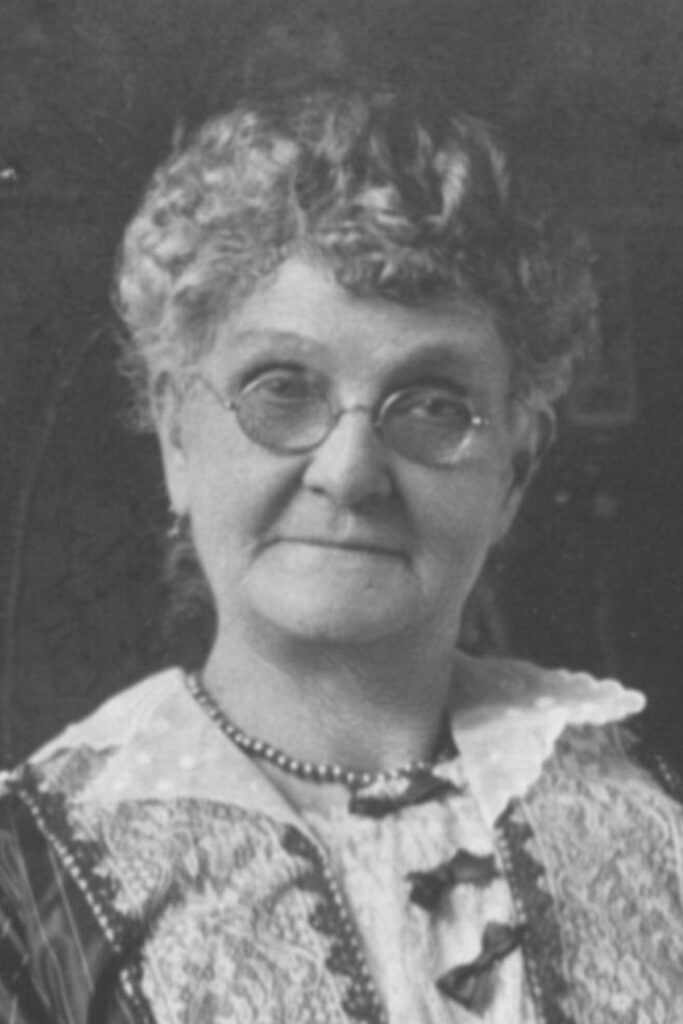
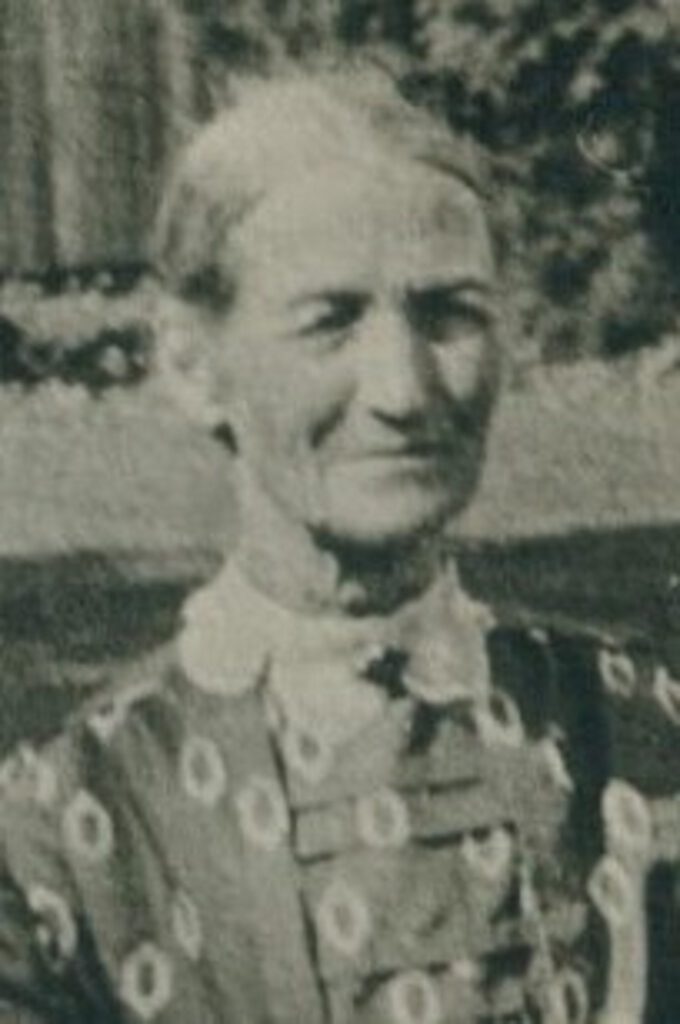
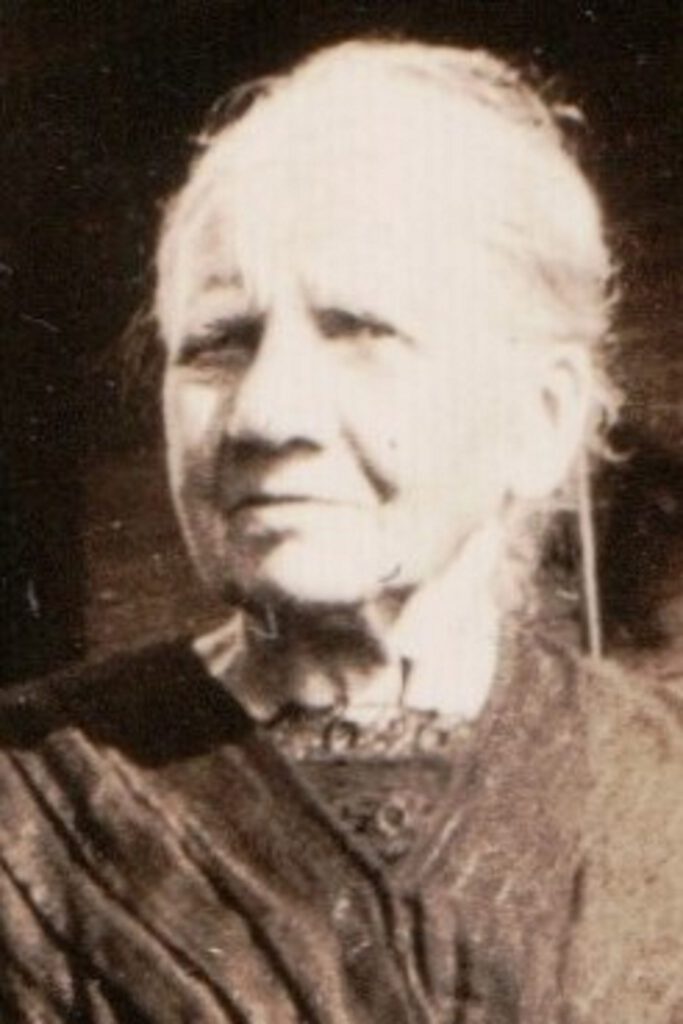
Three of our women would have been of age to vote in the 1872 presidential election, had they been allowed.
Amelia “Millie” Brace Phillips
This was Millie’s second missed election. Would she have voted for Grant both times? We’ll never know.
Millie was 28-years old at the in 1872. She was married to Albert “Tom” Phillips, and mother to four sons, Guy, Frank, Clarence, and Edmund. The youngest was born in January 1872. The family farmed at Bristol, Kendall County, Illinois.
Barebo Engebretson Torset Christianson
Barebo was 24-years old at the time of the 1872 election. She gave birth to her second child on 30 October 1872, so was busy taking care of her husband, Bjorn, and two daughters, Ragnild and Mary. She also had many farm wife duties on the farm in Udolpho Township, Mower County, Minnesota.
Bertha Auguste Henriette Kluender Aschbrenner
Bertha was also 24-years old. She had only been in the United States for a few years, but had married here not long after arriving. At the time of the 1872 election, she was grieving. Her first son, Heinrich, who was born 09 August 1872, died on 23 October 1872 when he was only a few weeks old. She still had her two young step-daughters, Amelia and Emma, and her husband, Frederick, to care for, as well as farm wife duties in Town of Berlin, Marathon County, Wisconsin, to keep her busy.
Greeley versus Grant
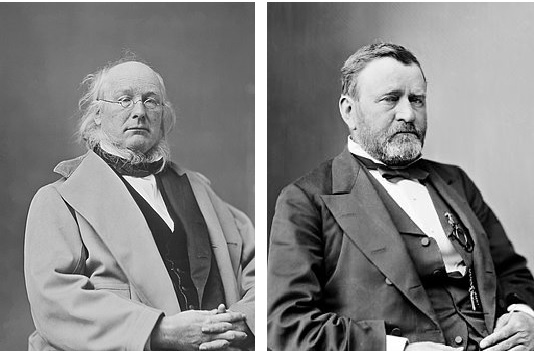
Horace Greeley (D) v. Ullysses S. Grant (R).
The 1872 presidential election was a strange one. Grant, a Republican, ran for re-election. His opponent was originally nominated by liberal Republicans. When the Democrats weren’t able to select their own candidate they ran Greeley.
Grant didn’t always make his political appointments based on merit. A lot of unqualified friends and friends of friends ended up with government positions. This didn’t make a lot of the Republican establishment happy. They were also unhappy with the way reconstruction was going. They opposed federal military occupation of the South and didn’t necessarily support ensuring former slaves had civil rights.
So, they created their own party called the Liberal Republicans and nominated Democrat Horace Greeley as their candidate. Then the Democrats, failing to find their own candidate, choose Greeley.
Grant’s Republican platform condemned racial and religious discrimination and called for granting women more rights.
The Democratic platform campaigned on a theme of having a more honest government and ending radical reconstruction. Greeley had been a supporter of spiritualism, prohibition, vegetarianism, and socialism. Republicans had an easy time attacking him.
The Democrats blamed Grant for corruption in his administration. The Republicans argued, and most Americans agreed, that Grant wasn’t responsible for that corruption.
Grant was re-elected by a large majority of voters.
Even if Greeley had won, he never could have served as president. He died after the general election but before the electoral college could vote. His electoral votes were divided up among the other five candidates, Grant and candidates from the Straight-Out Democrat, Independent-Democrat and Democrat parties.
1876



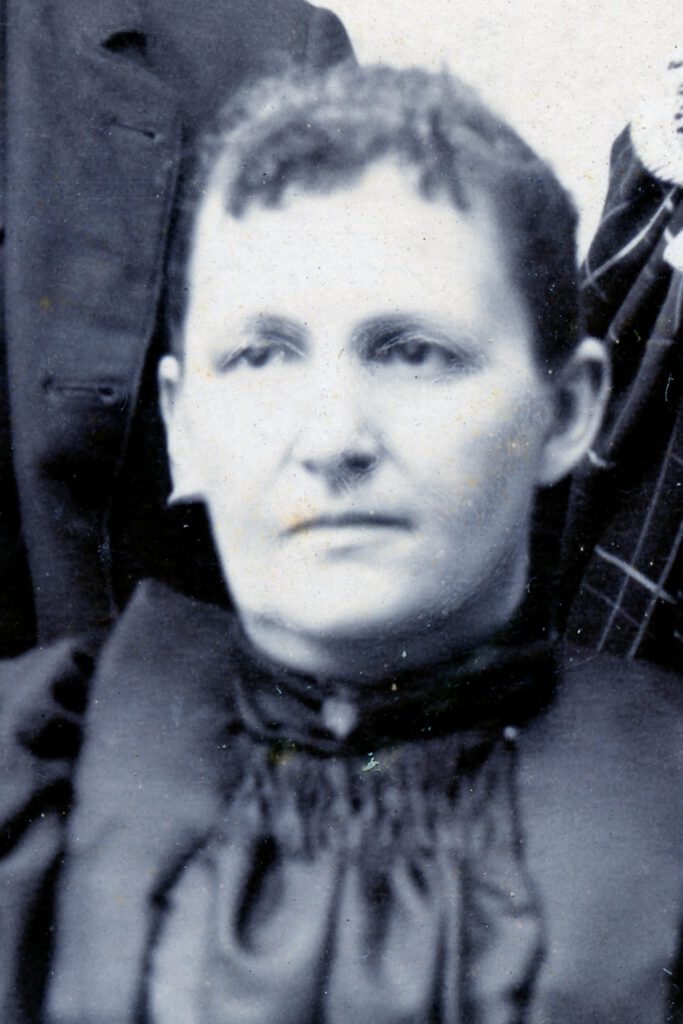
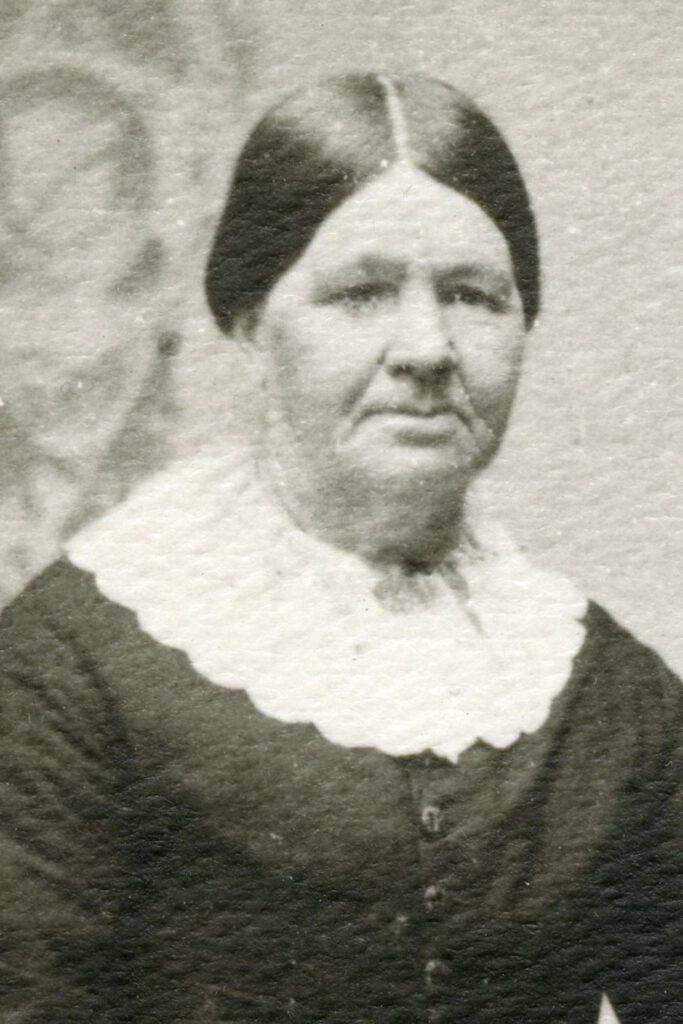
In 1876, we could add Jane Cornell Miller and Helen Lucina Baldwin to the list of our ancestors who were of age, but not allowed to vote because of their gender.
Helen Lucina Baldwin Fawcett
In 1876, Helen was 21-years old, married to James Wood Huleress Fawcett, and the mother to three sons, Ralph, Harry, and Franklin. She and her family lived in Richland Township, Jasper County, Iowa.
Jane Elizabeth Cornell Miller
Jane was 23-years old, married to George Miller, and the mother of three young children, Calvin, Frank, and Elvira, when the election happened in November 1876. Anti-suffrage people would probably argue that she was too busy taking care of her Big Rock, Kane County, Illinois, farm house, husband, and children to care about politics anyway. Her husband, George, could certainly take care of voting for the family.
Amelia Brace Phillips
Amelia Brace Phillips was still in Bristol, Kendall County, Illinois, at the time of the election. She was 32-years old and taking care of her six sons, Guy, Frank, Clarence, Edmund, Charles, and Harold. The newest baby was born in June 1876. Her husband was still a farmer and she a farm wife.
Barebo Engebretson Torset Christianson
Barebo was 28-years old at the time of the 1876 election. She gave birth to her fourth child, Ingebret, on 31 October 1876, a week before the election. She was busy taking care of her husband, daughters Ragnild and Mary, sons Christian and Ingebret, and Udolpho Township, Mower County, Minnesota, farm wife duties.
Bertha Auguste Henriette Kluender Aschbrenner
Bertha was 28-years old. Since the last presidential election, she had lost another infant son, Carl, but then given birth to two more sons, Frederick born in 1874 and Otto in 1876. She was busy keeping house on their Town of Berlin, Marathon County, Wisconsin, farm, raising four young children, and taking care of her husband.
Tilden versus Hayes
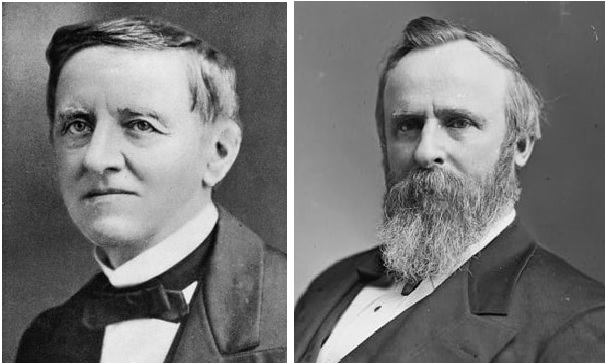
Samuel J. Tilden (D) v. Rutherford B. Hayes (R).
A financial crisis across Europe and North America, The Panic of 1873, triggered an economic depression that was still affecting the United States in 1876.
Many folks were growing very tired of reconstruction. Folks in the South, especially, were opposed to federal occupation.
The Republicans were fraught with troubles during the terms of Grant’s presidency. Scandals abounded.
The Republicans ran on a platform claiming, “the permanent pacification of the Southern section of the Union and the complete protection of all its citizens in the free enjoyment of all their rights, are duties to which the Republican party is sacredly pledged.” They still pushed for civil rights. They warned that the Democrats were too tied to the Southern states who had very recently fought against the Union and who would aim to harm human rights.
The Democrats ran on a platform of federal government reform. They also had a goal of civil service reform and restricting Chinese immigration to the US.
The results of this election were controversial. Tilden had 260,000 more popular votes than Hayes.
Kendall County, Illinois, where Amelia Brace Phillips lived, was solidly behind Hayes. It was a little closer in nearby Kane County, Illinois, where Jane Cornell Miller lived, but they still favored Hayes. Illinois wasn’t happy with the thought of Tilden winning. After the election, The Chicago Times lamented in its headline,
“LOST. The Country Given Over to Democratic Greed and Plunder. Tilden, Tammany, and the Solid South Are to Rule the Nation. Southern Rebels and Northern Copperheads in the Ascendant.”
Chicago Daily Tribune, November 8, 1876.
Barebo Engebretsdtr Torset Christianson lived in Minnesota. The day after the election, her county newspaper, reported on the uncertainty of the election results and did not hold back on expressing an opinion.
The Election. At this writing we have not reliable data sufficient to justify us in saying which of the Presidential candidates is elected, but it seems probable that Hayes has been chosen by a very small majority. We hope to know definitely before going to press. The first reports indicated the success of Tilden, and his friends here were in good spirits during yesterday. But the dispatches last evening gave the situation a different aspect, and the Republicans became more cheerful. They hope the country can be rescued from what seemed to us the most eminent peril. We have been accustomed to regard the American Republic as an institution designed to exist perpetually, and we have believed that its citizens possessed that degree of capacity for self-government necessary to its continued existence. Hence we have felt an assurance that the Republican party would elect its candidate for President. A French writer speaking of Waterloo, said that Napoleon lost that great battle not because of Blucher, nor of Wellington, but because of God! and we have felt that same omnipotent hand which took the Emperor from the theatre of war and tossed him upon an island of the sea and riveted his body within a tomb of rocks, would yet be felt upon the shoulder of the Democratic party, interrupting its progress and defeating its purposes. This is our belief to-day, and we await the announcement of the results with confidence, believing that the late election has been a victory in favor of good government, and that it will be followed by more prosperous commercial and social relations than we have enjoyed for many years.
The Mower County Transcript, November 9, 1876.
The paper went on to worry that the dispute over the electoral votes might only be settled by war.
Preliminary results showed that Tilden was just one electoral vote shy of the majority needed to win. However, there were disputed electoral votes. An Electoral Commission was created to resolve those disputes. Months after the election, on 02 Mar 1877, the commission ruled all of the disputed votes in favor of Hayes, giving Hayes a 185-184 electoral college victory.
While Northern Democrats were outraged by the ruling in favor of Hayes, Southern Democrats were fine with it because during the commission’s dispute resolution, Hayes had made secret promises to those Southern Democrats to remove federal troops from occupied Southern states, essentially ending reconstruction.
This election is one of the most controversial in American History.
Rutherford B. Hayes was the 19th president of the United States.
1880





Had women been granted the right to vote at the time, These five women would have been able to vote again in the 1880 election.
Helen Lucina Baldwin Fawcett
In 1880, Helen was 25-years old, married to James Wood Huleress Fawcett, and the mother to four sons, Ralph, Harry, Franklin, and George Emerson. They still lived in Richland Township, Jasper County, Iowa. Besides taking care of her husband and sons, she had to care for her father-in-law, Simeon Fawcett, a Civil War veteran who was living in their household. Helen’s occupation in the 1880 Federal Census was keeping house. Her husband was a farmer and her children were listed as at home.
Jane Elizabeth Cornell Miller
By 1880, Jane was 27-years old. Her family was complete with three sons and one daughter. She and her husband, George Miller, lived and worked on their farm at Big Rock, Kane County, Illinois. In the census, her occupation was listed as at home. Her husband was a farmer and her two oldest children were at school.
Amelia “Millie” Brace Phillips
Amelia turned 36 in 1880. On 23 September 1880, she gave birth to her last child. Raising seven boys ranging in age from newborn to 14, along with all the other duties of being a farm wife, likely had her very busy. The census records show that her five oldest boys were at school, her husband was a farmer, and her occupation was keeps house.
Barebo Engebretsdtr Torset Christianson
Barebo was 32-years old at the time of the 1880 election. She was busy taking care of her husband, three daughters, two sons, and the Mower County, Minnesota, farm. She also was caring for her 72-year old mother-in-law, Ragnild Bjornsdtr Skolt Rukke, who was living with the family. Barebo’s husband was a farmer, her kids and mother-in-law were at home, and her occupation was house keeper.
Bertha Auguste Henriette Kluender Aschbrenner
Bertha was 32-years old. In 1880, she was busy being a farm wife, taking care of her husband, and raising five young children, Amelia, Emma, Frederick, Otto and Martha. The census recorded her occupation as keeping house. Her husband was a farmer and her there oldest children were at school.
Hancock versus Garfield
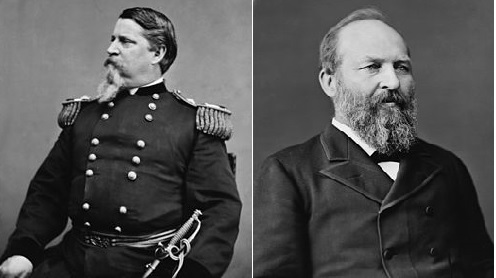
Winfield Scott Hancock (D) v. James A. Garfield (R).
Four years earlier, Rutherford Hayes, had campaigned promising to only do one term. So, he did not run for re-election. James A. Garfield was chosen as the Republican candidate for the 1880 election.
The Democrats chose Winfield Scott Hancock as their man.
The main issues of the 1880 election included tariffs, civil service reform, and Chinese immigration.
Both parties agreed that Chinese immigration needed to be restricted.
The Republicans, and their candidate, James A. Garfield, were pushing for strong tariff protection to curb foreign competition in the economic marketplace. They wanted higher tariffs.
Winfield Scott Hancock and the Democrats had more relaxed tariff ideas. They wanted lower tariffs.
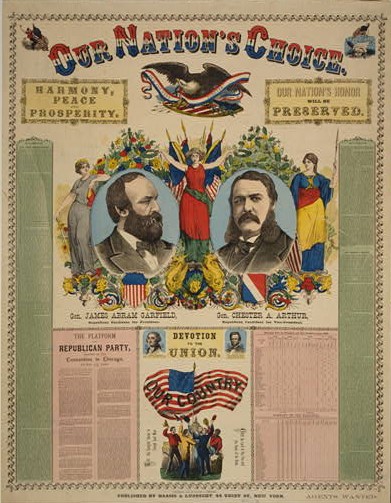
The Democrats were the most outspoken on civil service reforms. They accused both the Republican candidate and his running mate of political corruption.
Really, this election was a test of how the country felt about the Republicans relaxing reconstruction efforts in the southern states.
Garfield ran away with electoral votes, winning 214 to 155. But he won the popular vote by less than 10,000 votes. The results showed that the country was still deeply divided by the Civil War. Hancock won every state that had belonged to the Confederacy as well as many border states.
Garfield did not serve long. He was assassinated on 19 September 1881, not even a year into his term as president. Chester A. Arthur, the Vice President, took over the the office of president and completed the term.
James A. Garfield was the 20th president of the United States. Chester A. Arthur became the 21st.
1884





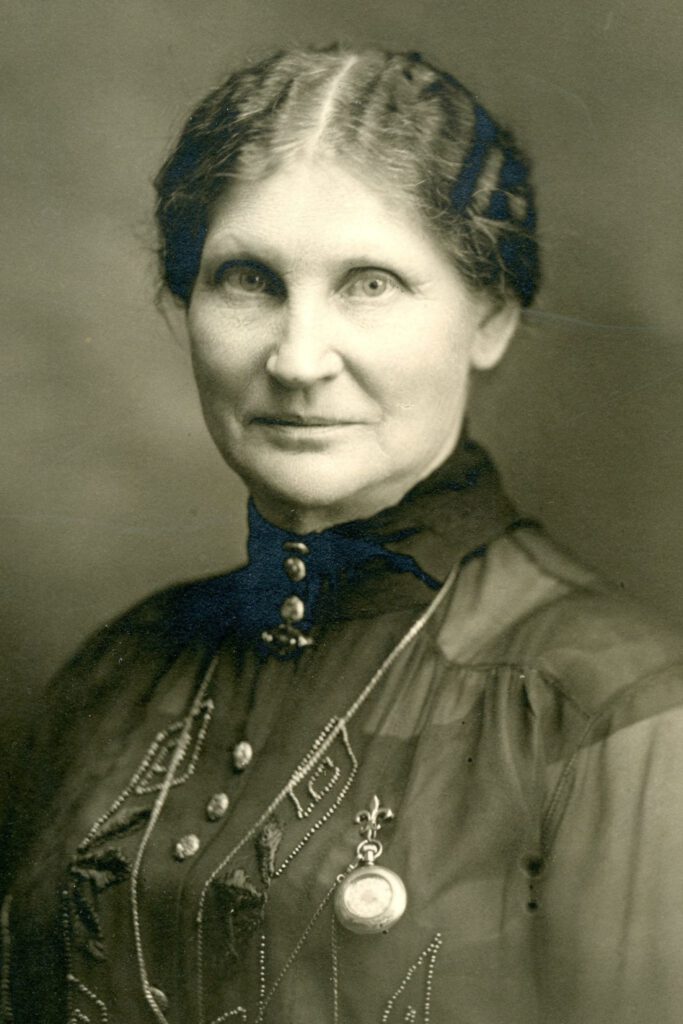
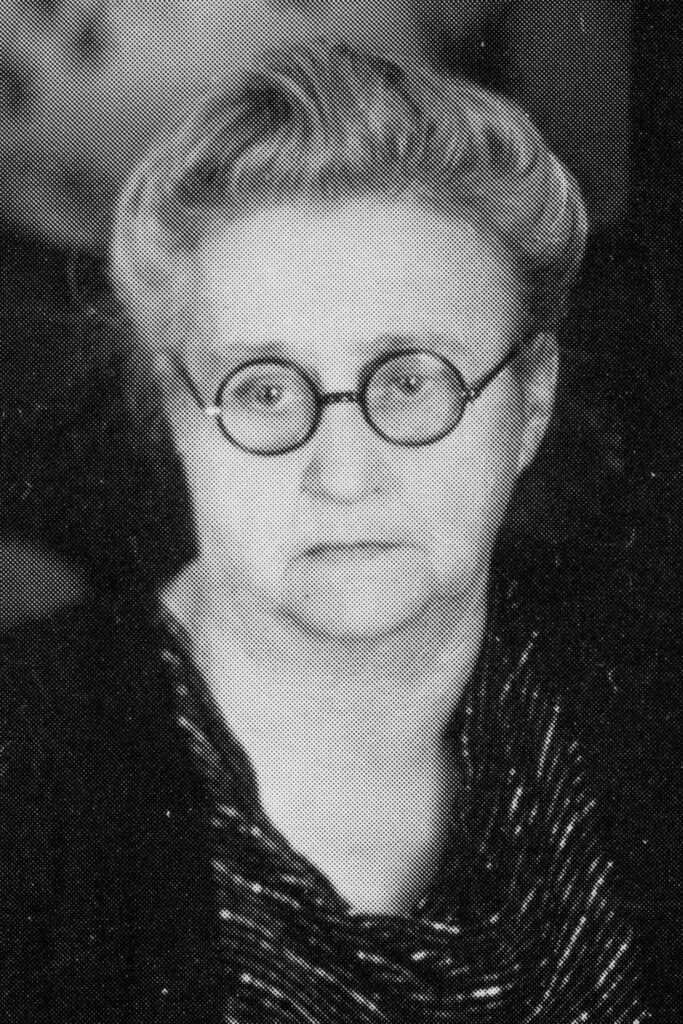
Women couldn’t vote in the 1884 election. If they had been given the right, seven of our profiled female ancestors would have been old enough to vote.
Clara Christine Elsebe Freese Lemke
Clara Christine Elsebe Freese Lemke arrived in the the United States in the fall of 1882. She and her oldest child, Frieda, made the voyage in order to join Clara’s husband Carl Lemke in Wisconsin. By the time of the 1884 election, she had given birth to two more children, Wilhelm and Carl. The family was living in Milwaukee, Milwaukee County, Wisconsin. Even if women had been allowed to vote, its not clear whether 25-year old Clara was considered a citizen, especially not this early after her arrival.
Caroline Hilson
Caroline Hilson 21-years old in 1884. She was single, living at home with her parents, Jorand Christiansdtr Rukke and Guttorm Hilson Wenaas, in Westfield Township, Dodge County, Minnesota.
Jane Elizabeth Cornell Miller
Jane was 31-years old in 1884. She and her husband, George Miller, lived and worked on their farm at Big Rock, Kane County, Illinois. They were busy raising their children Calvin, Frank, Elvira, and James.
Amelia “Millie” Brace Phillips
Amelia was 40-years old in 1884. She and husband Tom Phillips, were raising their seven sons, Guy, Frank, Clarence, Edmund, Charles, Harold, and Faye, in Aurora Township, Kane County, Illinois.
Bertha Auguste Henriette Kluender Aschbrenner
Bertha was 36-years old. Sadly, since the last election, she had buried an infant daughter named Bertha. She had also added two more sons, Edward, and Henry, to the family. So, she was raising her two step-daughters, one daughter, and four sons. The youngest son, Henry, was born in January 1884. The family lived on a farm at Town of Berlin, Marathon County, Wisconsin.
Barebo Engebretsdtr Torset Christianson
Barebo was 36-years old at the time of the 1884 election. She was busy on the Udolpho Township, Mower County, Minnesota, farm that she worked with her husband. She was raising seven children by this time, namely, Ragnild, Mary, Christian, Ingebret, Jorgine, Clara, and Lena.
Helen Lucina Baldwin Fawcett
In 1884, Helen was 29-years old, married to James Wood Huleress Fawcett, and then the mother to five children, Ralph, Harry, Franklin, George Emerson, and Mary Lorena. Since the previous election, they had left Jasper County and moved west to Harrison Township, Adair County, Iowa.
Cleveland versus Blaine
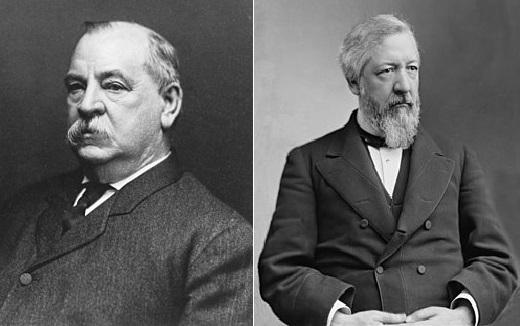
Grover Cleveland (D) v. James G Blaine (R).
This election became more about scandals and mudslinging than about issues.
During the campaign, Blaine toured the United States while Cleveland made few public appearances. Up until now, it was not considered appropriate for candidates to do a lot of campaigning for themselves.
The focus should have been on the main issues – civil service reform and tariffs.
This election made it clear that Republicans stood for big business. They were in favor of large tariffs to ward off competition. The Democrats were in favor of smaller tariffs and wanted to look out for farmers.
For the last many administrations, corruption reigned.
The focus should have been on the issues.
Cleveland was sold as the good guy, the clean guy, as opposed to the corrupt Blaine, who had been trading congressional favors for cash.
However, Blaine’s campaign made a claim that Grover Cleveland had fathered a child out of wedlock.
“Ma, ma, where’s my pa?”
– Republican campaign chant, 1880 election.
Cleveland took the high road and told the truth. He admitted that as a single man he had been illicitly acquainted with the child’s mother. He claimed that she had also been illicitly acquainted with some of his married friends. So, to protect his friends, he agreed to provide financial support for the child, even though he wasn’t sure he really was the kid’s dad. The mother of the child told a different story, but most of the public just thought that Cleveland may have been sowing wild oats – the fact that he was 40-years old at the time the child was conceived didn’t matter – it was still considered by most to be a youthful indiscretion.
Maybe our delicate woman were kept out of politics to protect them from scandalous behavior?
Democrats came up with their own chant to call candidate Blaine a liar.
“Blaine, Blaine, James G. Blaine, the continental liar from the state of Maine!
– Democratic campaign chant, 1880 election.
A supporter of Blaine’s insulted Irish Catholics. Blaine didn’t do anything to distance himself from the insults and ended up losing support from that demographic.
The election was close. Cleveland won the popular vote by a narrow margin. The electoral college vote came down to the results from New York state, giving the win to Cleveland.
Grover Cleveland was the first Democrat to win since 1856, before the Civil War. He was the 22nd president of the United States.
1888
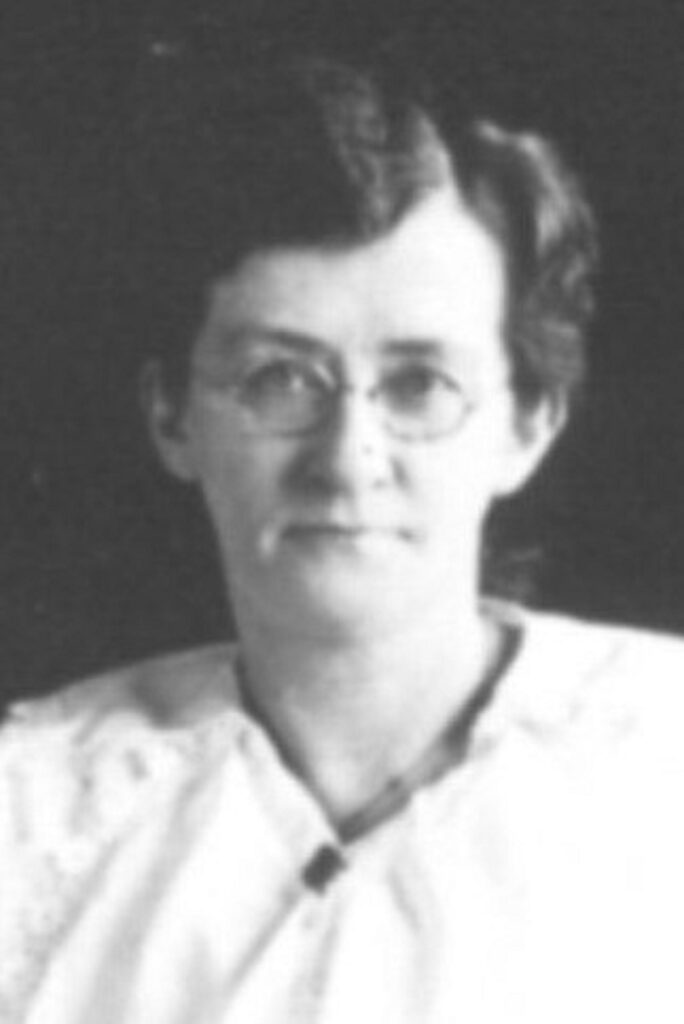







Women couldn’t vote in the 1888 election. If they had been given the right, eight of our profiled female ancestors would have been old enough to vote.
Gertrude Lovin Boyce Phillips
Twenty-three-year old Gertrude Lovin Boyce married Guy Allison Phillips, on 01 October 1888, not long before the 1888 presidential election. At 22-years old, he was eligible to vote. She wasn’t. In her memoir written towards the end of her life, she described this time in her life poetically.
These halcyon days wove a closer and dearer bond than friendship’s ties; ties of an engagement pledge, ties of sacred marriage vows. Again was scanned the anticipated new horizons in the beyond – Alpha and Omega.
– Gertrude Lovin Boyce Phillips, memoir.
Again to meet new friendships, new loyalties to meld into life’s vortex the unity of two souls striving to win the goal of creative milestones along the way.
Amelia “Millie” Brace Phillips
With son Guy’s marriage, 44-year old Amelia had only her six youngest sons and her husband at home. They continued to farm in Aurora Township, Kane County, Illinois.
Jane Elizabeth Cornell Miller
Jane Cornell Miller, age 35, still had her four children at home. She and her husband, George, farmed at Big Rock, Kane County, Illinois.
Barebo Engebretsdtr Torset Christianson
Barebo was 40-years old at the time of the 1888 election. She was busy taking care of her husband, seven daughters, two sons, and farm wife duties. They lived in Udolpho Township, Mower County, Minnesota.
Caroline Hilson Aldahl
Caroline Hilson married Lars Olson Aldahl on 19 November 1885. By the time of the 1888 presidential election, they had two children, Johanna and George. She was 25-years old. They had started their family in Westfield Township, Dodge County, Minnesota, but had recently bought a farm just south in Lansing Township, Mower County, Minnesota.
Bertha Auguste Henriette Kluender Aschbrenner
Bertha was 40-years old. Since the last election, she had added another daughter, Laura, to the family and gave birth to another son, Frank, in April 1888. Her brood now included two step-daughters, two daughters, and five sons.
Helen Lucina Baldwin Fawcett
In 1888, 33-year old Helen was grieving the loss of her oldest son. Son Ralph died in 1885 at age 15. They had a family portrait taken in 1888. Helen and Hugh were still married and she had four children at home. They still lived in Adair County, Iowa.
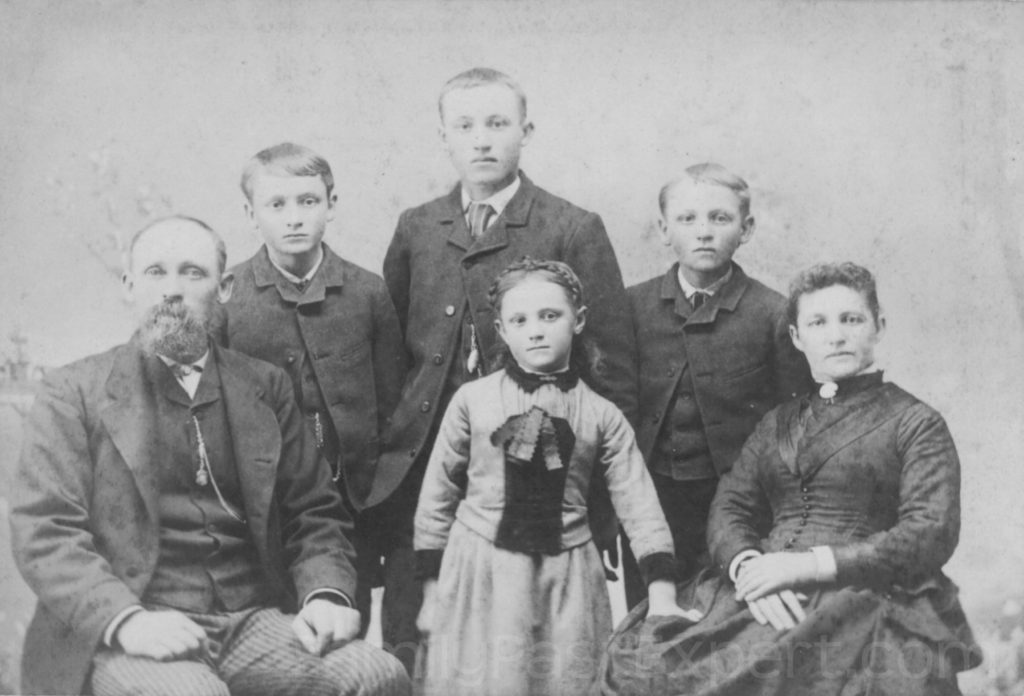
Clara Christine Elsebe Freese Lemke
Clara, then 29-years old, and family had moved to Wausau, Marathon County, Wisconsin by the time of the 1888 election. Times were sad for Clara between the 1884 and 1888 elections. Her son Carl passed away and she gave birth to Auguste, then Ferdinand, who both died in infancy. In June 1888, she had recently given birth to Clara. So, at the time of the election, her immediate family consisted of her husband and daughters Frieda and Clara. Unlike all our other women, Clara worked outside the home. She was a midwife, delivering babies across the area. She worked long and odd hours and provided for her family. Yet, she couldn’t vote.
Cleveland versus Harrison
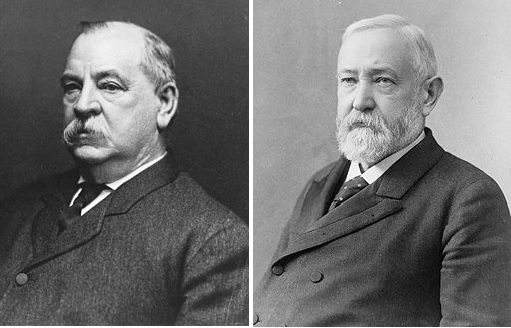
Grover Cleveland (D) v. Benjamin Harrison (R).
Tariffs!
The only real issue of the 1888 presidential election was tariffs. Raise them? Lower them? Reform them?
The Democrats favored more open trade and lower tariffs on imported goods and materials.
The Republicans had a protectionist policy and wanted to raise tariffs to increase the cost of imported goods, in theory pushing consumers to domestically produced products.
President Grover Cleveland was the Democratic Nominee.
Benjamin Harrison, a Civil War brigadier general and grandson of the 9th president, William Henry Harrison, was the Republican nominee.
As was custom, neither candidate actively campaigned for the office. Campaigning, instead was left to surrogates. The Republicans could afford more surrogates and campaigning because they did aggressive fundraising. Levi Morton, the Republican V.P. candidate was 64-years old and not very healthy, but he did a lot of touring to campaign. He constantly used a red handkerchief to wipe his brow. This became a symbol of the campaign with supporters waving similar red kerchiefs at his rallies.
In his first term, Cleveland had disenfranchised many Civil War veterans who were trying to get their pensions approved. As a Democratic president with a Republican senate, he used his veto power on hundreds of pension bills supporting those veterans.
Cleveland, however, ended up winning the popular vote. Though, some of this has been attributed to suppression of black voters in the South. The electoral vote, however went to Harrison with a comfortable margin. He took most states outside of the south.
Republican Benjamin Harrison became the 23rd president of the United States.
1892








Women couldn’t vote in the 1892 election. If they had been given the right, eight of our profiled female ancestors would have been old enough to vote.
Barebo Engebretsdtr Torset Christianson
Barebo was 44-years old at the time of the 1892 election. She had all of her eleven children by this time. She had seven daughters, namely, Ragnild, Mary, Jorgine, Clara, Lena, Maline and Inga, and three sons, Christian, Ingebret and Bennett. She and her husband Björn Christianson Rukke farmed in Udolpho Township, Mower County, Minnesota.
Bertha Auguste Henriette Kluender Aschbrenner
Bertha was also 44-years old at the time of the 1892 election. Tragically, a year earlier, she had had to bury her 12-year old daughter, Martha. Since the previous election, she had added another son, Samuel, to the family and gave birth to another daughter, in April 1892. That daughter, Hilda, would be the last of her twelve children. Her family now included two step-daughters, two daughters, and six sons. Her oldest step-daughter had married and produced the first grand-child in 1891.
Caroline Hilson Aldahl
Caroline was still growing her family at the time of the 1892 election. She was 29-years old and mother to Johanna, George, Clara, Selmer, and Ida. She and her husband Lars Olson Aldahl, farmed at Lansing Township, Mower County, Minnesota.
Clara Christine Elsabe Freese Lemke
Clara was still practicing midwifery in Wausau, Marathon County, Wisconsin, at the time of the 1892 presidential election. We can only wonder if she got any time off when she gave birth to her daughter Elsa in March of that year. Besides being a midwife, she was also mother to Frieda, Clara and Elsa and wife to Carl Lemke.
Amelia “Millie” Brace Phillips
Amelia turned 49-years old in 1892. Another son had left the nest, but Clarence, Edmund, Charles, Harold, and Faye were still at home in Aurora Township, Kane County, Illinois, with Amelia and her husband Tom Phillips.
Gertrude Lovin Boyce Phillips
Gertrude was 27-years old in 1892. She was then the mother of three boys, Roy, Albert, and Floyd. She and her husband Guy Phillips, lived in Kane County, Illinois. Gertrude wrote a little about their first home in her memoir.
“Our first home was a rented farm on the Base Line Road… This place joined Father Phillip’s farm on the east… Our house was a story and a half. A large sitting room, bedrooms, kitchen with a trap door opening to cellar steps, a pantry, a summer kitchen added the 1st year. The pantry could not be used in the coldest days. A small open chamber at the head of the stairs passing on side to reach the large chamber, the floors were 12 inch planks, the tread of the steep stairs 6 inches. … Guy worked so hard here improving the land. The out buildings were very satisfactory .. In the front yard one lilac bush, two small trees. Guy’s father gave him a gray mare, Elsie. The next year she broke her leg tangling in the barb wire. She was hoisted by a derrick between the cribs but died in a few days. One other horse I remember my driving nag, Fanny… In late spring of ’92 Guy bot a five yr. old black mare, Puss at the Chi horse sale.”
Gertrude Lovin Boyce Phillips, memoir.
Jane Elizabeth Cornell Miller
Jane, age 39, was still in Kane County, Illinois too. She and her family lived at Big Rock. Her kids were growing up. Calvin, the oldest was already 20-years old. James, the youngest, was fourteen.
Helen Lucina Baldwin Fawcett
Helen, age 37 was still the mother of four living children at the time of the 1892 election. A year earlier she had given birth to a son who did not survive. The family probably still lived in Adair County, Iowa.
Cleveland versus Harrison

Grover Cleveland (D) v. Benjamin Harrison (R).
The 1892 election was a rematch with the same candidates as four years previous. However, a third party, the Populist Party, also ran a candidate named James. B. Weaver, who made an impressive showing for a third party candidate.
Neither main candidate did much campaigning. Harrison’s wife was sick for most of the year and died two weeks before the election, so part of the lack of campaigning was in respect for her.
The main issues were centered on economics.
During Benjamin Harrison’s presidency, he and the Republican Congress pushed through a bunch of partisan measures raising import tariffs. Harrison was seen as a friend only of the wealthy. He also allocated millions of surplus dollars to Civil War pensions in what many considered wasteful spending.
At the time, there was a movement to stimulate inflation and alleviate the debts of farmers in the West through taking limits off silver coinage, or in other words allowing free and unlimited silver. Instead of having a gold standard, Harrison agreed with this movement, and advocated moving to bimetalism.
Violent labor strikes in Idaho silver miles and Pennsylvania steelworks, were arguments against Harrison’s high-tariff policies. Those policies lowered worker wages and were thought to be unfriendly to labor.
Cleveland wanted to remain with the gold standard and ran on a platform of lowering tariffs.
Cleveland and the Democrats also ran on a platform opposing a measure aimed at protecting voting rights for African Americans by allowing the federal government to monitor state and local elections. Their goal was to attract support from white Southerners. It worked, he swept the South. He also took important swing states.
Cleveland won both the popular and electoral votes in a most decisive victory.
With his second election, Grover Cleveland became the 24th president of the United States, the only president in history to serve two non-consecutive terms.
Missed Elections
We’ve now seen what was going on from 1868 through 1892 when our ladies were kept away from the presidential polling places. The next post will continue the review of missed elections, covering 1896 through 1916.
Selected Sources:
“List of United States presidential candidates,” Wikipedia (https://en.wikipedia.org/wiki/List_of_United_States_presidential_candidates : accessed 07 Jul 2020).
“Political,” Chicago Tribune (Chicago, Illinois) 26 Sep 1868, p. 2 (https://www.newspapers.com/image/465950415/ : accessed 07 Jul 2020).
“Lost,” The Chicago Daily Tribune (Chicago, Illinois) 08 Nov 1876, page 1 (https://www.newspapers.com/image/349593328 : accessed 07 Jul 2020).
“The Election,” Mower County Transcript (Lansing, Minnesota) 09 Nov 1876, page 2 (https://www.newspapers.com/image/171417404 : accessed 07 Jul 2020).
“United States presidential election of 1868,” Encyclopaedia Britannica (https://www.britannica.com/event/United-States-presidential-election-of-1868 ” : accessed 07 Jul 2020).
Richard Pallardy, “United States presidential election of 1872,” Encyclopaedia Britannica (https://www.britannica.com/event/United-States-presidential-election-of-1872 : accessed 07 Jul 2020).
“United States presidential election of 1876,” Encyclopaedia Britannica (https://www.britannica.com/event/United-States-presidential-election-of-1876/The-disputed-election : accessed 07 Jul 2020).
“1868 United States presidential election,” Wikipedia (https://en.wikipedia.org/wiki/1868_United_States_presidential_election#Campaign : accessed 07 Jul 2020).
“Illinois Suffrage Act (1913),” Office of the Illinois Secretary of State (https://www.cyberdriveillinois.com/departments/archives/online_exhibits/100_documents/1913-il-suffarge-act.html : accessed 07 Jul 2020).
Christopher Klein, “The State Where Women Voted Long Before the 19th Amendment,” History, 01 Apr 2019 (https://www.history.com/news/the-state-where-women-voted-long-before-the-19th-amendment : accessed 07 Jul 2020).
“Timeline of women’s suffrage in the United States,” Wikipedia (https://en.wikipedia.org/wiki/Timeline_of_women%27s_suffrage_in_the_United_States : accessed 07 Jul 2020).
“The Constitution: Amendments 11-27,” National Archives (https://www.archives.gov/founding-docs/amendments-11-27 : accessed 07 Jul 2020).
Jewish Women’s Archive. “Pamphlet distributed by the National Association Opposed to Woman Suffrage,” (https://jwa.org/media/pamphlet-distributed-by-national-association-opposed-to-woman-suffrage : accessed 07 Jul 2020).
“Woman Suffrage Timeline (1840-1920),” National Women’s History Museum (http://www.crusadeforthevote.org/woman-suffrage-timeline-18401920 : accessed 07 Jul 2020).
“Centuries of Citizenship: A Constitutional Timeline,” National Constitution Center (https://constitutioncenter.org/timeline/html/cw08_12159.html : accessed 07 Jul 2020).
“1872 Election Results Grant vs Greeley,” History Central (https://www.historycentral.com/elections/1872.html : accessed 07 Jul 2020).
“The Panic of 1873,” Wikipedia (https://en.wikipedia.org/wiki/Panic_of_1873 : accessed 11 Jul 2020).
“United States presidential election of 1880,” Encyclopaedia Britannica (https://www.britannica.com/event/United-States-presidential-election-of-1880 : accessed 10 Jul 2020).
“1880 Presidential Election,” 270 to Win (https://www.270towin.com/1880_Election/ : accessed 10 Jul 2020).
“Our nation’s choice–Gen. James Abram Garfield, Republican candidate for President, Gen. Chester A. Arthur, Republican Candidate for Vice-President,” Library of Congress , Library of Congress Prints and Photographs Division Washington, D.C. 20540 USA http://hdl.loc.gov/loc.pnp/pp.print (https://www.loc.gov/pictures/resource/cph.3g06109/ : accessed 10 Jul 2020).
Frank Beard / Public domain
“United States presidential election of 1884,” Encyclopaedia Britannica (https://www.britannica.com/event/United-States-presidential-election-of-1884 : accessed 10 Jul 2020).
Angela Serratore, “President Cleveland’s Problem Child,” Smithsonian Magazine, 26 Sep 2013 (https://www.smithsonianmag.com/history/president-clevelands-problem-child-100800/ : accessed 11 Jul 2020).
File: Benjamin Harrison-Morton “Protection” Portrait Handkerchief (4360241770.jpg), Wikimedia Commons (https://commons.wikimedia.org/wiki/File:Benjamin_Harrison-Morton_%22Protection%22_Portrait_Handkerchief_(4360241770).jpg : accessed 11 Jul 2020)
Richard Pallardy, “United States presidential election of 1888,” Encyclopaedia Britannica (https://www.britannica.com/event/United-States-presidential-election-of-1888 : accessed 11 Jul 2020).
“1888 Presidential Election,” 270 To Win (https://www.270towin.com/1888_Election/ : accessed 11 Jul 2020).
File: Grover Cleveland – NARA – 518139 (cropped).jpg, Wikimedia Commons (https://commons.wikimedia.org/wiki/File:Grover_Cleveland_-_NARA_-_518139_(cropped).jpg : accessed 11 Jul 2020).
File: James G. Blaine – Brady-Handy.jpg, Wikimedia Commons (https://commons.wikimedia.org/wiki/File:James_G._Blaine_-_Brady-Handy.jpg : accessed 11 Jul 2020).
File: Winfield Scott Hancock – Brady-Handy.jpg, Wikimedia Commons (https://commons.wikimedia.org/wiki/File:Winfield_Scott_Hancock_-_Brady-Handy.jpg : accessed 11 Jul 2020).
File:James Abram Garfield, photo portrait seated.jpg, Wikimedia Commons (https://commons.wikimedia.org/wiki/File:James_Abram_Garfield,_photo_portrait_seated.jpg : accessed 11 Jul 2020).
File:Benjamin Harrison, head and shoulders bw photo, 1896.jpg, Wikimedia Commons (https://commons.wikimedia.org/wiki/File:Benjamin_Harrison,_head_and_shoulders_bw_photo,_1896.jpg : accessed 11 Jul 2020).
File:Horatio Seymour – Brady-Handysmall.jpg, Wikimedia Commons (https://commons.wikimedia.org/wiki/File:Horatio_Seymour_-_Brady-Handysmall.jpg : accessed 11 Jul 2020).
File:Ulysses S. Grant 1870-1880.jpg, Wikimedia Commons (https://commons.wikimedia.org/wiki/File:Ulysses_S._Grant_1870-1880.jpg : accessed 11 Jul 2020).
File:Horace Greeley restored.jpg, Wikimedia Commons (https://commons.wikimedia.org/wiki/File:Horace_Greeley_restored.jpg : accessed 11 Jul 2020).
File:SamuelJonesTilden.jpg, Wikimedia Commons (https://commons.wikimedia.org/wiki/File:SamuelJonesTilden.jpg : accessed 11 Jul 2020).
File:RutherfordBHayes.jpg, Wikimedia Commons (https://commons.wikimedia.org/wiki/File:RutherfordBHayes.jpg : accessed 11 Jul 2020).
John M. Cunningham, “United States presidential election of 1892,” Encyclopaedia Britannica (https://www.britannica.com/event/United-States-presidential-election-of-1892 : accessed 11 Jul 2020).
“1892 United States presidential election,” Wikipedia (https://en.wikipedia.org/wiki/1892_United_States_presidential_election : accessed 11 Jul 2020).

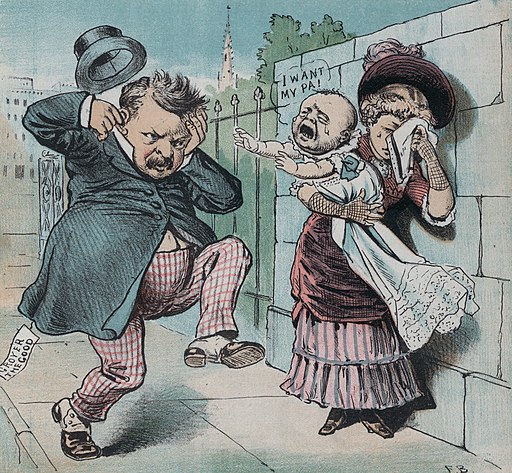


Leave a Reply